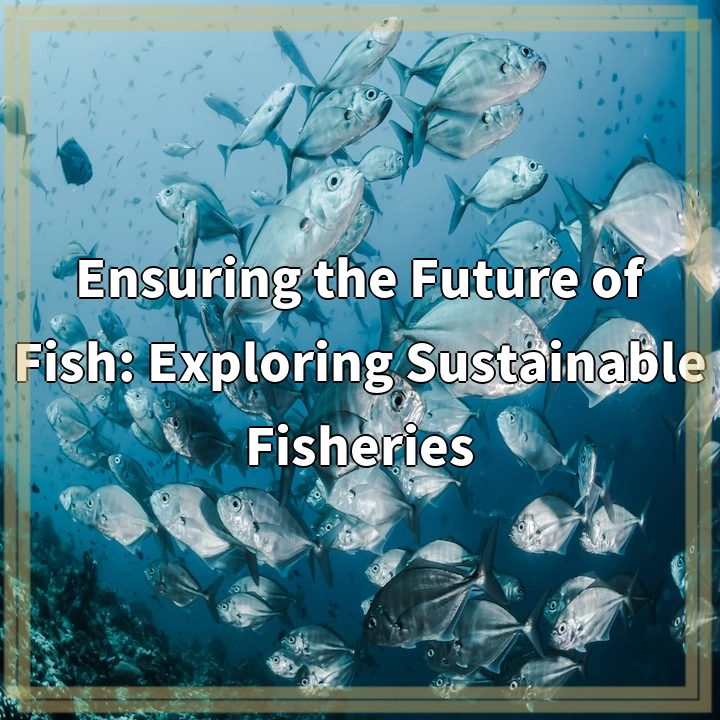
What is Sustainable Fisheries?
Sustainable fisheries refer to the management and practices employed to ensure the long-term viability of marine and freshwater fish populations. It entails considering the ecological, social, and economic aspects of fishing to prevent overfishing, protect habitats, and promote responsible fishing practices.
Real-World Problems Associated with Sustainable Fisheries
1. Overfishing
One of the major challenges facing sustainable fisheries is the issue of overfishing. As global demand for seafood continues to rise, many fish stocks around the world are being harvested at an unsustainable rate. This leads to the depletion of fish populations, threatening the balance of marine ecosystems and the livelihoods of communities dependent on fishing.
2. Bycatch and Discards
Bycatch refers to the unintentional capture of non-target species in fishing nets. It is a pressing issue in sustainable fisheries as it can result in the death of marine mammals, sea turtles, seabirds, and other non-targeted fish species. Discards also contribute to this problem, where unwanted catch is thrown back into the water, often dead or dying.
3. Habitat Destruction
Fishing activities can lead to the destruction of critical habitats such as coral reefs, seagrass beds, and mangroves. Bottom trawling, for example, involves dragging large nets along the seabed, causing irreparable damage to delicate ecosystems. The loss of these habitats has severe implications for marine biodiversity and the overall health of ecosystems.
4. Illegal, Unreported, and Unregulated (IUU) Fishing
IUU fishing undermines sustainable fisheries by breaching regulations and depleting fish stocks. It often involves fishing without proper licenses, disregarding size or catch limits, and operating in restricted areas. IUU fishing not only threatens the sustainability of fish populations but also hinders efforts to monitor and manage fisheries effectively.
5. Climate Change
Climate change poses a significant challenge to sustainable fisheries. Rising sea temperatures, ocean acidification, and changes in ocean currents impact the habitats and reproductive patterns of fish species. These disruptions can lead to shifts in fish populations, making it harder for fisheries management to predict and adapt to changing conditions.

Solutions for Sustainable Fisheries
1. Implementing Science-Based Management
Science-based management strategies, such as setting catch limits based on fish populations’ health and reproductive capacity, are essential for maintaining sustainable fisheries. Employing advanced technologies for monitoring fishing activities and collecting accurate data can aid in making informed management decisions.
2. Promoting Selective Fishing Gear and Techniques
Encouraging the use of selective fishing gear and techniques can help reduce bycatch and discards. Tools like turtle excluder devices (TEDs), acoustic deterrent devices (ADDs), and escape panels in fishing nets allow for the safe release of non-target species. Innovation and investment in new sustainable fishing technologies are crucial for minimizing unintended harm to marine life.
3. Protecting Critical Habitats
Establishing marine protected areas (MPAs) and implementing sustainable fishing practices in sensitive habitats can help safeguard marine ecosystems. These areas provide refuge for fish populations to reproduce and grow, aiding in their sustainability. Implementing zoning and spatial planning measures can also help reduce habitat destruction by limiting fishing activities in vulnerable areas.
4. Strengthening Monitoring and Enforcement
Elevating efforts to combat illegal, unreported, and unregulated (IUU) fishing is vital. Strengthening surveillance and control measures, improving international cooperation, and imposing strict penalties for non-compliance are essential steps. Utilizing innovative technologies like satellite monitoring and electronic surveillance systems can enhance monitoring and enforcement capabilities.
5. Building Resilience to Climate Change
Addressing the impacts of climate change on fisheries requires a holistic approach. Implementing adaptive management strategies, improving stock assessments, and promoting ecosystem-based approaches can enhance the ability of fisheries to withstand and adapt to changing environmental conditions. Reducing greenhouse gas emissions and supporting climate change mitigation efforts are also crucial for long-term sustainability.















